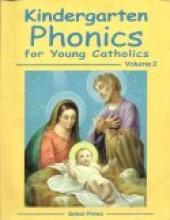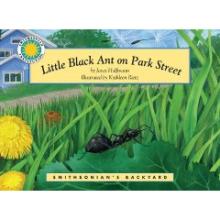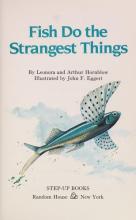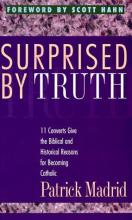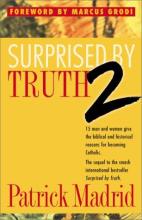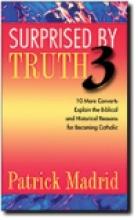No name
Kindergarten Phonics for Young Catholics
This volume begins with Unit three. It reviews the Alphabet sound list. Then it covers the following letters: N (including a N/M discrimination), W, C, R, P, Q, V, X, Y, Z. The lessons are the same setup as in Volume 1 (as explained above for the letter "S").
Unit four introduces the vowels. It begins by reviewing the consonants. Then it introduces Short "A". The lessons are as follows for Short "A". First is: recognizing the short sound of Aa. Then Short Vowel Aa. Then blending consonants with the short sound of Aa. Then Short Vowel Aa. Finally the short Aa sound in sentences. This is repeated for Short E, I, O and U. There are reviews after every two vowel sounds taught.
Unit 5 begins by reviewing consonants and short vowels. Then it teaches the two sounds of "C" and "G". Then it begins the long vowels.
It begins in with A. The lessons go as follows: First recognizing the long sound of Aa. Then discriminating between long and short A. Then blending consents with long A. Then again recognizing sound of the long and short A. Then it goes on to E, I, O, U long vowels. Reviews after *each* vowel.
The next section teaches consonant blends like SM, CR, PL, TR, GL, ST as initial sounds. Then final sound consonant blends like CK, NG, MP, SK, NK, and ST. Then the digraph TH is taught and the difference between T and TH.
The final section of volume two is about Y as a vowel. There are three lessons here involving Y with A, with E, and with I in one or two syllable words. The final two lessons are reading a little story about a puppy and answering questions for comprehension.
Shakespeare Can Be Fun series
Little Black Ant on Park Street
Birds do the Strangest Things
Twenty-two stories of the natural but strange and fascinating behavior of various birds. The text covers ostriches, hummingbirds, kiwis, loons, peacocks, emperor penguins, woodpeckers and much more. The text is somewhat lengthy (approx. 12-20 lines per page), but in fairly large print and at a fairly easy reading level. My children find this book completely fascinating. Part of the "Step-Up" series which includes "Meet George Washington" et al.
Fish do the Strangest Things
An informative and enjoyable collection of stories about some very interesting and remarkable fish – such as the Deep Sea Angler, the Archer Fish, the Lungfish, the Puffer Fish and the Mud-Skipper. Although the illustrations aren't fabulous, this book and others in the series have been real favorites with my children. The stories are engaging, fairly short (two to three pages with rather large type) and the content is very appealing. We discovered this book when my daughter was five and for her it became a starting point for a real interest in Sea-Life in particular and Science in general.
Behind Enemy Lines
Surprised by Truth
These are relatively short (usually about 20 or 30 pages each) autobiographical essays from Catholic converts. The stories cover a numer of converts who are becoming well-known for their vibrant Catholic ministries of various sorts, and so you may have heard the names Marcus Grodi, James Akin, Steve Wood, Tim Staples and Dave Armstrong before). Because of the variety of authors, the reading levels and vocabulary used vary greatly - some are simple and succinct and others more complex - but all are compelling in their own way; all help to shed more light on what it means to be a Catholic and why the Catholic Church is so different from other beliefs. Although primarily intended for adults, the book would make excellent apologetics reading for high schoolers because it provides a wealth of information and "holy ammunition" in intellectual battles with non-Catholics.
Surprised by Truth 2
The sequel to Surprised by Truth provides even more stories of how the grace of God, the witness of others and important conversations about the truth, brought these men and women back to the fullness of the Cahtolic faith.

